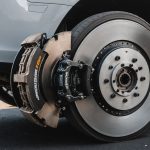Driving a modified vehicle can be a thrilling experience, allowing you to personalize your car and enhance its performance. But as exciting as these changes may seem, they come with a complex web of legal and safety considerations. Understanding the implications of car modifications is crucial for every driver on UK roads. From insurance implications to legal regulations, knowing how these factors influence your driving experience ensures you remain compliant and safe. In this article, we explore the multifaceted world of car modifications and their impact on drivers.
The Legal Landscape of Vehicle Modifications
Modifying a vehicle in the UK entails navigating a dense network of laws and regulations designed to ensure safety and maintain road standards. The Driver and Vehicle Standards Agency (DVSA) enforces these guidelines to ensure that modified vehicles adhere to road safety requirements.
Also to see : How can car clubs enhance your ownership experience and provide valuable support?
What Constitutes a Modification?
A vehicle modification is any change made to a car that affects its original factory specifications. This can include alterations to the engine, suspension, exhaust, bodywork, or even the addition of aftermarket parts like tinted windows or non-standard lights.
Legal Compliance
Every modification must comply with UK road laws. This may require your vehicle to pass an Individual Vehicle Approval (IVA) test, proving it meets safety and environmental standards. Failing to meet these standards can result in fines, penalty points, or even the confiscation of your vehicle.
In parallel : What should you consider before modifying your car’s exhaust system?
Staying Informed
The landscape of vehicle modification is always evolving. Keeping abreast of the latest news and updates in regulations is essential. Regularly consult the DVSA and other relevant authorities to ensure your modifications remain compliant.
The Impact of Modifications on Car Insurance
Car modifications, while enhancing performance or aesthetics, can significantly influence your insurance premiums and coverage. It’s vital for drivers to recognize how these changes might affect their policy terms.
Communication is Key
Informing your insurance provider of any changes to your vehicle is essential. Failure to disclose modifications can result in a voided policy, leaving you financially exposed in the event of an accident or theft.
Increased Premiums
Modifications often lead to higher premiums. Insurers may perceive modified vehicles as riskier due to enhanced performance capabilities or increased theft appeal. This translates into higher repair costs, which are reflected in your insurance premiums.
Implications of Non-Disclosure
Not reporting modifications can lead to severe consequences. Insurers may refuse to honor claims if modifications are discovered after an incident. This can leave you responsible for all costs incurred, a hefty burden that could be avoided with upfront communication.
Safety Considerations for Modified Vehicles
Safety should always be a top priority when considering vehicle modifications. Whether you’re enhancing the engine for speed or altering the suspension for off-road adventures, ensuring that your modifications do not compromise safety is critical.
Performance vs. Safety
Boosting your car’s performance can be tempting, but it’s essential to strike a balance between speed and safety. Higher speeds can affect a vehicle’s handling, braking, and stability, potentially leading to accidents if not managed properly.
Professional Installation
Ensuring modifications are professionally installed can mitigate safety risks. Trained technicians have the expertise to maintain compliance with safety standards while installing new parts.
Regular Maintenance
Maintenance becomes even more crucial with modified vehicles. Routine checks can identify potential safety issues early, allowing you to address them before they escalate into bigger problems on the road.
The Role of Drivers in Maintaining Road Safety
Drivers play a pivotal role in maintaining road safety, particularly when operating modified vehicles. Adapting to the unique handling and performance characteristics of a modified car is essential for safe driving.
Adjusting Driving Habits
Each modification can alter your vehicle’s behavior on the road. It’s crucial to adjust your driving style to accommodate these changes, ensuring you remain in control at all times.
Staying Educated
Continuous education is vital. Understanding the intricacies of your modifications can help anticipate how they affect your vehicle’s performance. Many driving schools offer courses tailored to modified vehicles, providing insights into advanced driving techniques.
Fostering a Safety-First Mentality
Encouraging a culture of safety among modified car enthusiasts can contribute to safer road conditions. By prioritizing safety, drivers help protect themselves and others on the road, creating a safer driving environment for all.
Navigating the world of vehicle modifications requires a blend of enthusiasm and responsibility. While personalizing your car can lead to greater enjoyment and performance, it’s essential to remain informed about the legal and safety implications. By keeping up with the latest regulations, maintaining open communication with insurance providers, and prioritizing safety, you can enjoy your modified car within the bounds of UK law. As passionate drivers, your commitment to safety and compliance ensures a safer driving experience for everyone on the road.
In recent years, the trend of modifying vehicles has grown significantly in the UK. Many drivers choose to enhance their cars for better performance, aesthetics, or personal expression. However, with these modifications come important considerations regarding safety, insurance, and legal regulations. This article explores the implications of driving a modified vehicle on UK roads, guiding you through the essential aspects to ensure you remain compliant and safe while enjoying your enhanced vehicle.
Understanding Vehicle Modifications
Vehicle modifications can encompass a wide range of changes, from cosmetic alterations to significant performance upgrades. Common modifications include changing the engine for increased power, installing new exhaust systems for a sportier sound, or upgrading lights for better visibility. While some modifications are purely aesthetic, others can dramatically alter how a car drives and behaves on the road.
When considering modifications, it’s crucial to remember that not all changes are legal or safe. For instance, modifications that affect the safety features of the car, such as lowering the suspension or altering the brakes, can lead to severe consequences if not done correctly. Additionally, modifications must comply with the Vehicle and Operator Services Agency (VOSA) regulations, ensuring that vehicles remain roadworthy and safe for everyday use.
It’s worth noting that any alteration that could impact the car’s performance may require an update to the vehicle’s insurance policy. Your insurance provider needs to be aware of these changes to avoid potential complications in the event of an accident. Failing to declare modifications could result in a claim being denied or significant penalties, including fines or points on your driving license.
In summary, while modifying your vehicle can be an exciting venture, it’s essential to understand the full scope of what modifications entail, both in terms of legality and safety.
Legal Regulations Surrounding Modifications
In the UK, there are specific regulations governing vehicle modifications to ensure that all cars on the road are safe and compliant with legal standards. Understanding these regulations is vital for any driver considering modifications.
The DVLA (Driver and Vehicle Licensing Agency) requires drivers to inform them of any modifications that change the car’s performance, such as engine swaps or alterations to the vehicle’s structure. Not doing so could result in fines or other legal repercussions. Furthermore, modifications must adhere to the Road Traffic Act, which mandates that vehicles must be maintained in a condition that is safe for road use. This includes ensuring that any modifications do not compromise the car’s ability to pass its MOT (Ministry of Transport) test.
Additionally, certain modifications, such as tinted windows or non-standard wheels, may have specific restrictions. For example, window tints must adhere to limits set by law, ensuring sufficient light transmission for safety. Non-standard wheels must also comply with regulations regarding size and load capacity to maintain the vehicle’s stability and handling characteristics.
Moreover, it’s important for drivers to be aware of local laws that might differ from national regulations. Some councils may have additional restrictions regarding certain modifications, particularly in urban areas. Checking with local authorities or a legal expert can provide clarity on what you can and cannot change without facing penalties.
In conclusion, staying informed about the legalities surrounding vehicle modifications is crucial. By adhering to these regulations, you ensure not only your safety but also that of other road users.
Insurance Implications for Modified Vehicles
When it comes to modified vehicles, the topic of insurance cannot be overlooked. Drivers must understand that any changes made to a car can significantly affect their insurance policy and premiums. Most insurance companies classify modified vehicles as higher risk, which can lead to increased premiums.
It’s essential to declare all modifications to your insurer, including minor changes like upgraded stereo systems or cosmetic alterations. Failure to do so can have dire consequences. In the event of an accident, if the insurance company discovers that modifications were not disclosed, they may refuse to pay out on a claim. This could leave you with hefty repair bills and potential legal issues.
Moreover, some providers may not cover certain modifications at all, especially those that significantly enhance performance, such as turbochargers or superchargers. It’s advisable to shop around for insurance policies that specialize in modified vehicles, as they are more likely to understand the nuances of your modifications and offer adequate coverage.
Additionally, modifications that improve safety, such as advanced braking systems or better lighting, might even result in lower premiums, as they can reduce the risk of accidents. It’s worth discussing these aspects with your insurance provider to find the most suitable policy for your modified vehicle.
In summary, always declare modifications and consult with your insurer to ensure that you have appropriate coverage. Taking these steps will not only protect you financially but also ensure peace of mind while driving your modified vehicle.
Safety Considerations for Modified Vehicles
Safety should always be a paramount concern for drivers, especially when it comes to modified vehicles. Modifications, while enhancing the driving experience, can also introduce risks if not approached carefully.
One of the primary safety concerns relates to how modifications can impact a vehicle’s handling and braking capabilities. For instance, installing a more powerful engine can improve acceleration, but if the brake system is not upgraded accordingly, it could lead to dangerous situations. Additionally, modifications such as lowering a vehicle can affect its center of gravity, leading to increased rollover risks.
Moreover, the choice of aftermarket parts plays a significant role in safety. Not all aftermarket modifications are created equal. It is essential to source parts from reputable manufacturers that meet safety standards. Cheap or poorly made components can fail, leading to potential accidents. Always ensure that modifications are done by skilled professionals who understand the implications of their work on the car’s overall safety.
Another critical safety aspect is visibility. Upgrading lights can enhance your visibility on the road, particularly in poor weather conditions. However, using non-compliant lights can lead to blinding other drivers or failing an MOT test. Ensure that all lighting modifications comply with legal standards to maintain safety and legality.
In conclusion, while modifications can enhance your driving experience, prioritizing safety is non-negotiable. Always consider how changes affect the vehicle’s overall safety and consult professionals to ensure modifications are done correctly.
The Future of Vehicle Modifications and Road Regulations
As we look to the future, the landscape of vehicle modifications and road regulations is likely to evolve. With advancements in automotive technology and changing societal attitudes towards vehicles, drivers may face new challenges and opportunities regarding modifications.
One emerging trend is the increasing popularity of electric and hybrid vehicles. These vehicles offer unique modification possibilities that differ from traditional combustion engines. As more drivers embrace electric vehicles, the way we modify vehicles might shift significantly. Regulations will need to adapt to ensure that modifications made to electric vehicles are safe and compliant with emerging standards.
Additionally, the rise of digital technology in cars, such as advanced driver-assistance systems (ADAS), raises questions about how modifications can impact these systems. Modifications that interfere with the software or hardware of these systems could pose safety risks, leading to stricter regulations regarding modifications.
The future may also see changes in how insurance companies handle modified vehicles. As more data becomes available about the safety implications of different modifications, insurers may adjust their policies and premiums accordingly, potentially offering better rates for certain types of modifications.
Moreover, with the increasing focus on sustainability, modifications that enhance fuel efficiency or reduce emissions may become more popular and better supported by regulations. The UK government is likely to continue promoting cleaner vehicles, meaning modifications that align with environmental goals may receive more favorable treatment.
In conclusion, staying informed about the future of vehicle modifications and the accompanying regulations will be essential for drivers. The automotive landscape is changing rapidly, and being proactive about these changes can ensure that you enjoy your modified vehicle while remaining compliant and safe.
In conclusion, driving a modified vehicle on UK roads comes with a series of important implications that every driver should be aware of. From understanding the legal framework surrounding modifications to ensuring proper insurance coverage and prioritizing safety, being informed is crucial. As you embark on your journey of modifying your vehicle, remember to approach each change thoughtfully and comply with all regulations to enjoy the benefits of your vehicle upgrades while minimizing risks. Staying informed and engaged with the latest news and regulations will help ensure a safe and enjoyable driving experience on the roads.











